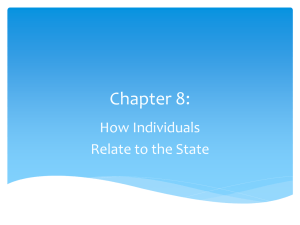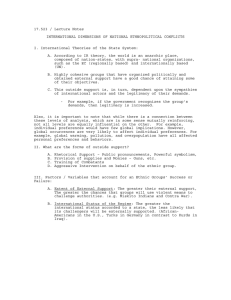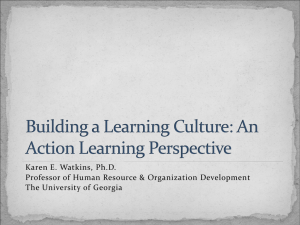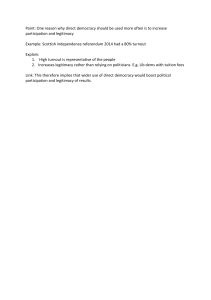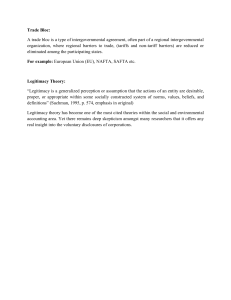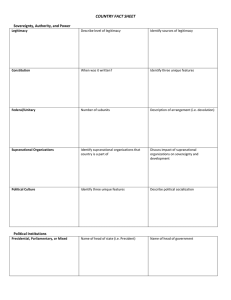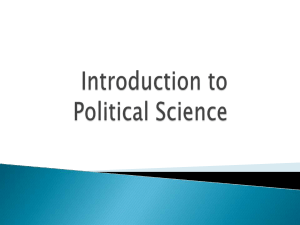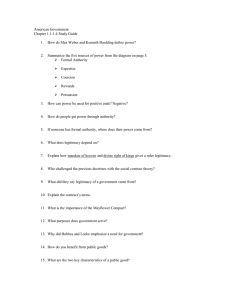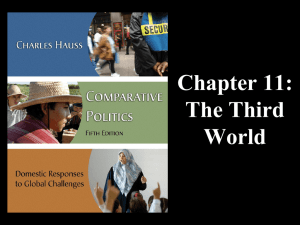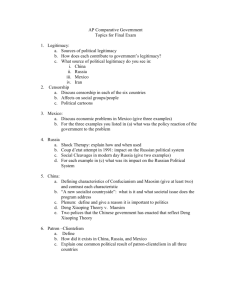natnlpwr - Kean University
advertisement
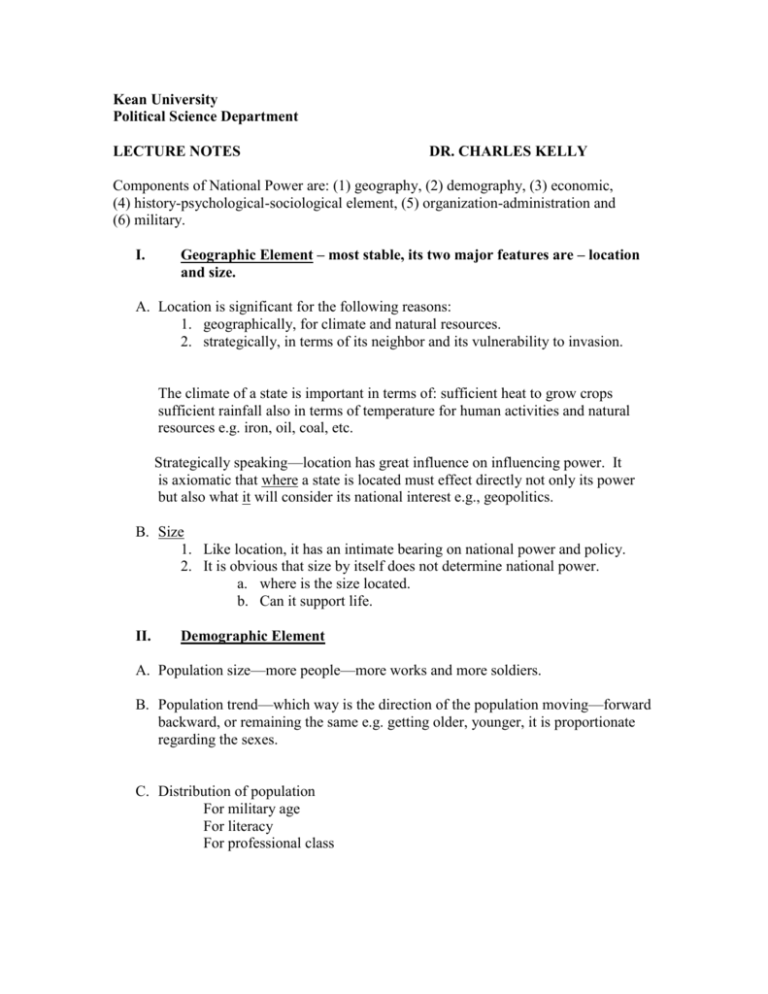
Kean University Political Science Department LECTURE NOTES DR. CHARLES KELLY Components of National Power are: (1) geography, (2) demography, (3) economic, (4) history-psychological-sociological element, (5) organization-administration and (6) military. I. Geographic Element – most stable, its two major features are – location and size. A. Location is significant for the following reasons: 1. geographically, for climate and natural resources. 2. strategically, in terms of its neighbor and its vulnerability to invasion. The climate of a state is important in terms of: sufficient heat to grow crops sufficient rainfall also in terms of temperature for human activities and natural resources e.g. iron, oil, coal, etc. Strategically speaking—location has great influence on influencing power. It is axiomatic that where a state is located must effect directly not only its power but also what it will consider its national interest e.g., geopolitics. B. Size 1. Like location, it has an intimate bearing on national power and policy. 2. It is obvious that size by itself does not determine national power. a. where is the size located. b. Can it support life. II. Demographic Element A. Population size—more people—more works and more soldiers. B. Population trend—which way is the direction of the population moving—forward backward, or remaining the same e.g. getting older, younger, it is proportionate regarding the sexes. C. Distribution of population For military age For literacy For professional class III. Economic Element A. Raw material resources 1. possess them 2. have access to them a. colonial power b. import them 3. substitute for them B. Production rates present and projected 1. the amount of basic resources 2. the amount of heavy and light industry 3. Gross National Product per capita IV. Historical-Psychological-Sociological Element—less than tangible but not less important A. Historical Experience and its psychological and sociological effects on the contemporary scene. B. National Character or national outlook 1. questioned for its validity—not all 2. typical and modal views exist. 3. should be at least a sizeable amount 4. should be representative or have influence in its governing. B. Structure and Morale of a National Society 1. morale—will to fight 2. not torn by cleavages—class vs. class race vs. race religion vs. religion ethnic group vs. ethnic group V. Organization-Administration—if government can bring the potential power of the nations to bear upon a problem, the power might as well not exist. 1. actual power is not derived from the type of government a state claims to have. The constitutional arrangement and legal system espoused by certain states are often misleading in assessing the importance of the organization-administration factor e.g. Soviet constitution of 1936. 2. forms and types of organization of government that a state actually have in itself does not necessarily reflect the true amount of power this factor contributes to the total national power. a. type of government is often a result of the interaction of the historical-psychological-sociological element and the people of the state. 3. attitude toward government by the people 4. problems of bureaucracy Thus what is the attitude of a people toward their government? Is the government viewed as legitimate and or what basis is it legitimate? Legitimacy is not only based on government efficiency – it is based on the values of the people in society and whether government reflects those values. There are three types of legitimacy; rational, charismatic, and traditional. VI. Military 1. 2. 3. 4. size of armed forces quality of their training how industrialized the state is weapons and equipment An assessment of national power should keep in mind: 1. all elements are interrelated 2. the last two are crucial in translating potential to actual power 3. some elements are difficult to measure 4. since both potential and actual power are constantly changing the total is even more difficult to measure.
